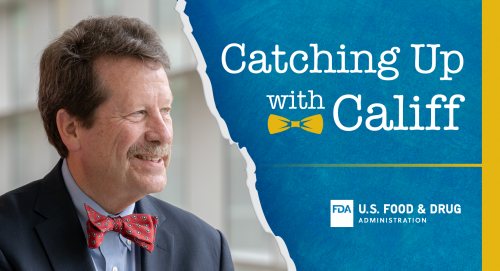Treatment Using Medication for Opioid Use Disorder Can Save Lives

By: Robert M. Califf, M.D., Commissioner of Food and Drugs
Since launching our Overdose Prevention Framework in August, 2022, the FDA has taken some important steps to address the opioid overdose crisis. Today I’d like to catch up with you about opioid use disorder (OUD), and efforts we’re taking to mitigate this ongoing health condition.
What is OUD and How Treatment Using Medication Can Help
OUD is a chronic health condition, which is treatable with medication in a variety of practice settings, including primary care. An estimated 6.1 million people in the U.S. aged 12 or older have OUD, which in primary care settings is often unrecognized. OUD is defined as a loss of control of opioid use, risky opioid use, and impaired social functioning. Symptoms of this disease include an overpowering desire to use opioids, increased opioid tolerance, and withdrawal syndrome when opioids are discontinued.
There are many people who could benefit from treatment but who have not received any medications for OUD. Treatment of OUD reduces the risk of overdose, return-to-use, and death, as well as reduces drug cravings, infectious disease transmission, and criminal activity compared to those receiving no treatment. Medications as part of a treatment plan for OUD can help increase treatment retention and improve social functioning.
FDA’s “Prescribe with Confidence,” Resources, and How to Partner
The agency is launching a new campaign today called “Prescribe with Confidence” to help raise awareness about OUD and to provide resources for clinicians. The campaign began with months of data collection and listening to the needs of primary care clinicians, many of whom are overworked and without much support. Information overload has been one of the major barriers to even consider prescribing MOUDs, and the campaign provides recommended resources from government agencies and trusted organizations on a website for busy clinicians. Our goal is to increase the number of health care practitioners who can recognize OUD and prescribe medication to treat OUD when indicated. There are materials, mentors, and training available to help prescribers get started.
I believe recent developments specific to the FDA are having a positive impact, but it’s also important to acknowledge the enormous pain that the overdose crisis has brought to too many individuals and their families, with over 100,000 deaths last year alone. We will continually seek ways we can effectively work together with all interested parties and partners to stem this crisis, like we are doing for this campaign. And we will continue our work in other areas, including encouraging medical product innovation to prevent opioid misuse and to treat those who are affected. This includes efforts to spur the development of new diagnostic tests and treatments—including digital health technologies—that can help combat the opioid crisis.
We hope you’ll visit our website to learn more:
• Primary Care Providers Can Prescribe with Confidence
• Partner with Us to Help More Providers Prescribe with Confidence
Catch up with you next time.

